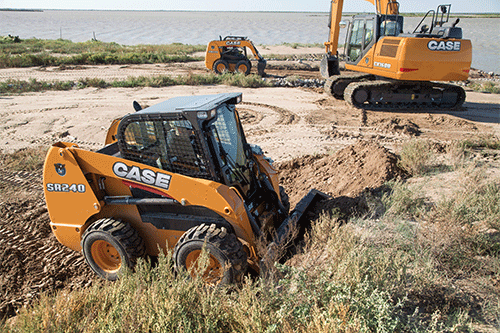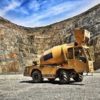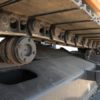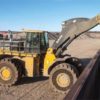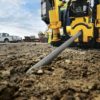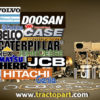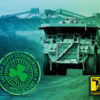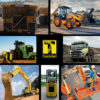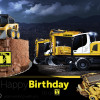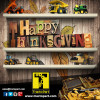Landscaping Pros Share Tips for Success
Dennis Elverman and Ross Swartz grew up across the pond from each other on the same stretch of rural county road near Wilmot, Wisconsin. Both men have had an impact on residential and commercial landscaping in southeastern Wisconsin and northeastern Illinois. Elverman is entering his 45th year as a professional landscaper this spring (28 as the owner/operator of Twin Lakes, Wisconsin-based Elverman Landscapes). Swartz has been working the family nursery and landscaping business (Paul Swartz Nursery) since the 1970s, and is entering the first year of a two-year term as the president of the Wisconsin Nursery and Landscape Association.
The size of their businesses may be different (Elverman runs a crew of three; Swartz runs numerous crews and a fully operational nursery), but many of the themes shared by each of them are universal to all landscaping businesses: hard work and reputation will take you places – as long as you’re prepared for what’s ahead and you’ve got a plan for managing the workload.
Tips for a Successful 2016
- Get aggressive: Both Elverman and Swartz noted the importance of not slowing down when the weather starts to turn cold – and going out and meeting with past customers as soon as the weather improves. “The biggest thing is to definitely not take a rest in November when things start freezing up,” says Elverman. “You have to answer your phone calls, you have to keep in contact with people. I’ve never been at peace where I didn’t have some big projects sold in January. To wait for the phone to ring in March and April makes you nervous.” Each year, Elverman makes a point to check on past projects in the spring to ensure the work has held up. Ideas for new projects – or additional work in the same neighborhood – can spring up in those meetings. “On a Saturday or Sunday, I’ll stop and see people I haven’t seen in five years. If you made sure at the end of the job you had a good relationship, they’re always glad to see you.”
- Get smart about utilization and ownership costs: “Things wear out on machines and landscapers use them hard,” says Swartz. “That’s always the question: Is it worth putting the money into fixing the old machine, or taking the money towards a new one? That’s something we assess every winter.” Swartz also notes that his skid steers, for example, have a planned life cycle that optimizes new machines for heavier work and places older machines in less demanding applications. “All of our equipment starts out on landscape jobs,” says Swartz. “After they’ve gotten [heavy use and wear and tear], they go to the nursery. They’re still very valuable to have around the nursery when it gets really busy in the spring. That’s when we start assessing when it’s time to make a decision on trading them in and getting a new one.”
- Get analytical: “That’s something I did not do as well as I could have when I was starting out,” says Elverman. “When you’re new and striving, you’re in constant movement and you’re probably wasting some motion and there are things you’re not making money on. Now, I do a daily log and I have my daily cost and overhead figured out.”
- Get creative: With the advent of the big box retail outlets, many homeowners now feel empowered to take on projects of their own. It’s the professional landscaper’s role to leverage their creativity and expertise to show value to the homeowner. “You can go to a big box store and get an $80 kit and make a fire pit,” says Elverman. “You have to know, with your expertise and design work and creativity, how to show value and create a more unique outdoor living environment for that customer.”
- Get proactive with maintenance: “I fix the equipment right away in the fall when things are fresh in your mind,” says Elverman. “Cash flow is good. It’s best to fix things when you don’t have a crisis or a fire to put out. If there are big [purchases], many times I’ll wait until I’m going to use them. If a dump truck needs six new tires and you’re looking at spending $2,000, I’ll wait until March rather than have it sit for the winter.” “This time of year [January-February], I’ve got the equipment ready to go. There’s little things I work on each day… but if you put it off, you might not get the chance. In spring, I’ve started work in Wisconsin as early as March 3rd. I like to have things ready in case I need it.” Swartz notes that it’s just as important to pay attention to smaller support equipment, which is often subject to heavy use on the job, but can be easy to overlook because it’s not as large of an investment as a skid steer or track loader. “Small equipment – the rototillers, the sod cutters – all get oil changes and a good inspection.”
- Get clean: Swartz notes that this year is a short offseason – they worked almost up until Christmas and, if forecasts hold, it could be an early spring. But one of the things his maintenance team focuses on is conducting a deep clean of the equipment, which accumulates a lot of material over the course of a season. “When you’re working in muddy conditions that landscapers typically do, between the dust and mud, it gets in there,” says Swartz. “It’s very important to get that all cleaned out of there. [It adds] heat and weight [to the machine] – we do a better job of, every winter, really getting in there and cleaning it out.”
- Get it delivered: A big part of success and profitability is determining the most efficient way to do things. While Elverman started out his business with numerous dump trucks of varying sizes, he’s now able to lower his total cost of ownership/operation and get by with a single, mid-sized dump truck thanks to the proliferation of landscape supply yards. “There are so many suppliers now,” says Elverman, “if you get in a pinch and you don’t have your own trucks empty, you can easily have it delivered. I think a crew today can operate efficiently with a dump truck, a trailer, a loader and all their hand tools.”
- Get experience: Swartz notes that one of the best things that someone who wants to own a landscaping business can do is work for someone else. It may seem practical to buy a truck and get some hand tools and start “doing jobs,” but landscaping is a skilled trade that must be learned. “Get some experience so you truly know what you’re doing,” says Swartz, “because there’s so much to landscaping to know. You need to know plants. You need to know hardscaping. You need to know your grading, and where water is going to flow – all of these things that you really need to work with an established company to [understand]. If you want to run your own company someday, the best way to do that is to work for someone else who is very good.”
- Get networking: Swartz, who is the new president of the Wisconsin Nursery and Landscape Association, points to the importance of industry networking and continuing education. “We do a lot of educational programs, and we have monthly meetings where we bring in [an expert] talking about diseases and bugs, plants, or sometimes we have the DOT come in and go over everything we need to know about running trucks down the road, or carrying skid steers on trailers. Safety. For the little bit that it might cost you to be a member per year, it’s worth it.”
- Get efficient: “You have to be very efficient in this business because you only have a certain amount of months each year to earn your whole living,” concludes Elverman. “You have to rest, but in order to rest, you have to be very efficient.”
